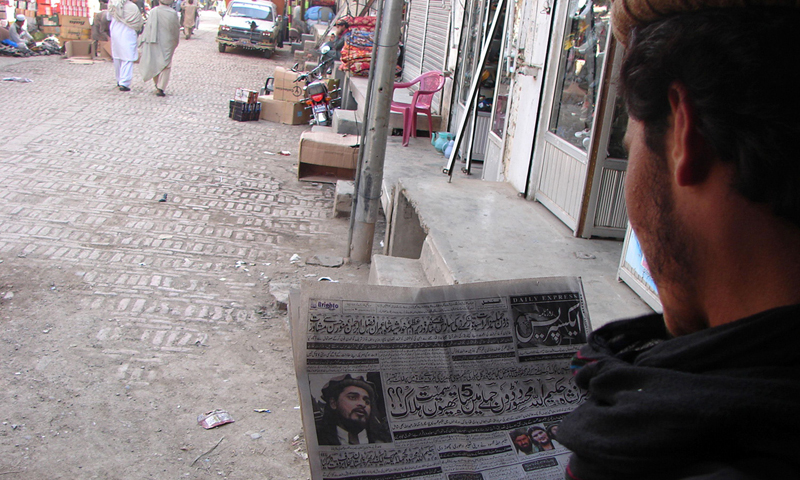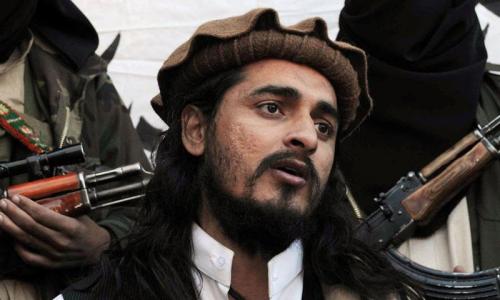ISLAMABAD: The Pakistani Taliban leader killed in a recent US drone strike was behind hotel bombings, assaults on political rallies, beheadings of policemen and suicide attacks on soldiers.
But his death elicited little joy in the country where he wreaked most of his havoc and instead stirred widespread anger and suspicion.
At the time of Friday's strike targeting Hakimullah Mehsud, the Pakistani government was engaged in efforts to negotiate a peace deal with militants.
Frustrated at years of military campaigns that have failed to end the bloodshed, many Pakistanis had high hopes for this latest peace effort and blame the US for fouling it up.
Mehsud ''should have been given the chance to negotiate, and now the consequences have to be borne by Pakistan, not the US,'' said Syed Ahmed, a small business owner in the southern port city of Karachi.
Also contributing to the anger are fears of a bloody backlash, plus a web of complex conspiracy theories, including the idea that militants such as Mehsud are American or Indian pawns intent on weakening Pakistan.
For years, Pakistan has been fighting militants in the tribal areas that border neighboring Afghanistan, with thousands of civilians and security forces dying in bombings and shootings at the hands of militants.
Mehsud, who had a reputation as an especially ruthless warrior, was the leader of the Pakistani Taliban, or the Tehrik-i-Taliban Pakistan, as it calls itself.
The TTP is an umbrella group encompassing militant organisations across the tribal areas.
It has called for the overthrow of the Pakistani government, the implementation of hard-line Islamic law and an end to cooperation with the Americans in Afghanistan.
In many ways, people across Pakistan are echoing what they are hearing from politicians and top government officials.
During a news conference Saturday, Interior Minister Chaudhry Nisar Ali Khan lashed out repeatedly at the U.S., which he said was trying to scuttle peace talks.
Imran Khan, the former cricket star who now leads a key opposition party, threatened to close Nato supply lines in retaliation for the drone attack.
The US and Pakistan are wary allies in the war against militancy.
Suspicion in Pakistan against America runs deep, fueled by a perception that Pakistan's militancy problems were foisted on it by the US invasion of Afghanistan, which pushed militants into the tribal areas of northwestern Pakistan.
Many Pakistanis question why Pakistan, a predominantly Muslim country, is at war with other Muslims and its own citizens.
Amir Sultan, a salesman at a garment business in Islamabad, said whenever Pakistan starts efforts to make peace with the Taliban, America sabotages it. "It is an American agenda to destroy Pakistan,'' he said. ''It is in America's interest to pit Muslim against Muslims."
There is also suspicion that the US and neighboring India, a longtime enemy, are directly promoting and funding militants as a way to weaken the country. In the eastern city of Lahore, where that feeling is especially prevalent, lawyer Masood Wattoo blamed the US and India for a recent string of bombings in the northwest, including a suicide attack on a church full of worshippers.
"It was the handiwork of America and India," he said.
In the southern port city of Karachi, Ahmad Jan suspected the US and India were behind at least some of the militant groups operating across Pakistan.
"The TTP is a terrorist organisation. Whoever challenges the writ of the state can't be our friends, but obviously they have the support of our enemies,'' he said.
Mehsud's death has roused fears of a backlash of bombings and shootings.
The militant group has already vowed to take revenge as it did after its deputy was killed in May in another drone strike.
In the northwestern city of Peshawar, which has taken the brunt of many attacks, anxiety about another wave of violence has been palpable.
''We fear more bloodshed and more destruction because these people can't attack America or shoot the drones down. Therefore only we, the poor Pakistanis, have to face the revenge, even though we had nothing to do with this,'' said Muhammad Tahir, a university student.
''Hakimullah's death,'' he added, ''will make the situation more difficult for us.''















































